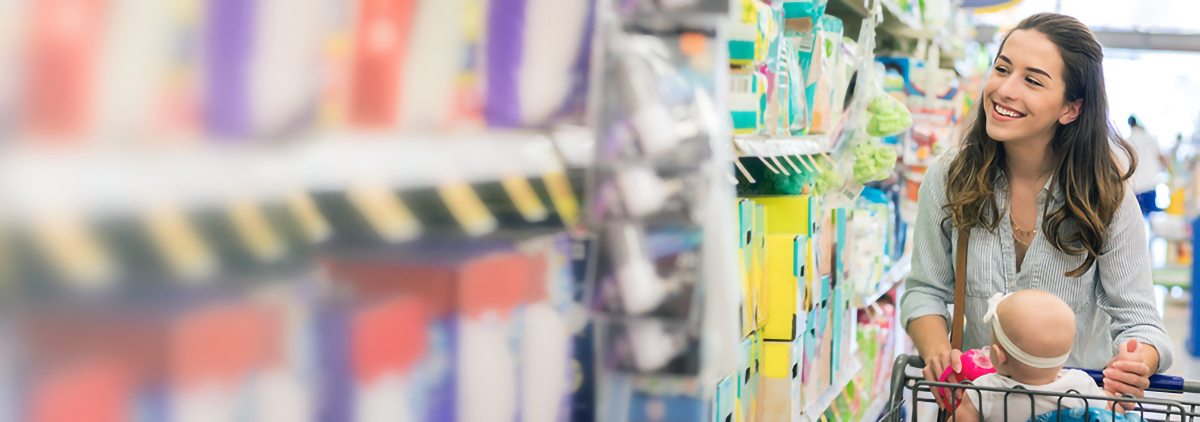Private Label manufacturers are taking the Baby Diapers market by a storm – here’s why
As the Baby Disposable Hygiene market moves from the constraints of the physical world to the long-tailed distribution of the Internet, Private Label manufacturers, once associated with low-cost low-quality products, have come to rival established brands on equal footing, catering to niche and mainstream customers alike. The digital revolution, by providing a nearly infinite supply of widely diverse products to thinly spread audiences around the globe, has broken the spell of the 20th-century scarcity-driven economy, where mass-market megahits monopolized the landscape. Unsurprisingly, the success of Private Labels has been largely built upon their broad variety of products as well as their ability to rapidly adapt to an ever-evolving market.
As pointed out by Nonwovens Industry, the rise of Private Label manufacturers in the Baby Diapers' market has coincided with the emergence of Millennials - a new tech-savvy, information-hungry demographic, more sensitive to eco-sustainability, innovation and breadth of choice than to saving money.
The environment is indeed a matter of concern for most modern consumers of Baby Diapers. Still according to Nonwoven Industry, Private Labels tend to offer a wider range of options than brands, which often narrow their offer to a few hits. Rarely Private Labels compete on price; they set themselves apart by targeting the long tail, addressing unserved market segments with hard-to-find, almost-exclusive products. In this context, going green is their perfect positioning strategy.
When it comes to innovation, Millennials entering the market has marked the turning point for store brands. Whereas previously Private Labels had to wait for established brands to pioneer new special features, they are now leading the race, with incumbents playing catch-up to protect their market share.
Another reason why these manufacturers are coming to the fore is market structure. According to Euromonitor, Private Labels are endemic to the Disposable Hygiene market, most likely because Baby Diapers are treated as commodities by consumers. With such a levelled playing field, store brands, naturally more inclined to target niche segments, have an easier time at launching innovative products that, however risky, are intrinsically remarkable and attention-grabbing.
Brands are not standing by. Their recent product lines focus on innovation and stronger marketing messages to cater to Millennials. For this reason, a few big players are taking action as far as eco-sustainability is concerned.
Private-label Baby Diapers market in Europe
Europe is experiencing an overall decline in birth rates leading to a negative value growth in its already saturated, highly-competitive Baby Disposable Hygiene market. The sentiment is shifting towards premium products, with a strong focus on convenience in use. Because of this, and thanks to the expansion of online channels, Private Label products are getting traction, especially in Eastern Europe, where their market share in 2018 was 17%.
Forecasts are positive for most countries, but trends are diverse throughout the area. Germany and the UK, where cost savings have been a major concern since the aftermath of the financial crisis, have registered a noteworthy growth of Private Label products, while in other countries such as France loyalty to brands is high. Premiumization is a driving force in Spain, France and the UK, where demand for Disposable Baby Pants is growing against Open Diapers. Sustainability is still a niche concern, mostly boosted by e-retailers.
There is a pattern: brands in Europe have no longer a monopoly on innovation. With Private Labels improving in quality, brands are battening down the hatches with aggressive advertising campaigns for Baby Pants adoption also earlier than potty training.
How big is the US diapers market
In North America, Private Labels have a much stronger presence than in Europe, accounting for 35% of value sales. This is largely due to huge investments in R&D over the years, which translates into innovation and better product-market fit.
The role of international retailers is significant in the country, with chains of brick-and-mortar stores and e-commerce corporations setting foot in the market more and more. Whether they support Private Labels as launch partners or father them themselves, e-retailers and store chains are more and more a threat for the incumbents, as their double role of distribution platform and market player may put them at an advantage in the future.
That said, American store brands in the field might represent a tough challenge even for e-retailers and store chains, as they’re not just getting bigger: they are evolving into a new kind of company that finds itself at ease with online channels and powerful storytelling. The kind that builds a brand. This "new Private Label" makes extensive use of contract manufacturers so it can focus on branding and marketing and build consumer loyalty. Also, it employs subscription models that are perfectly suited to a market like that of Baby Diapers, characterized by its cyclic nature.
Interested to deepen how GDM could match Private Labels’ needs?
Get in touch with us!


